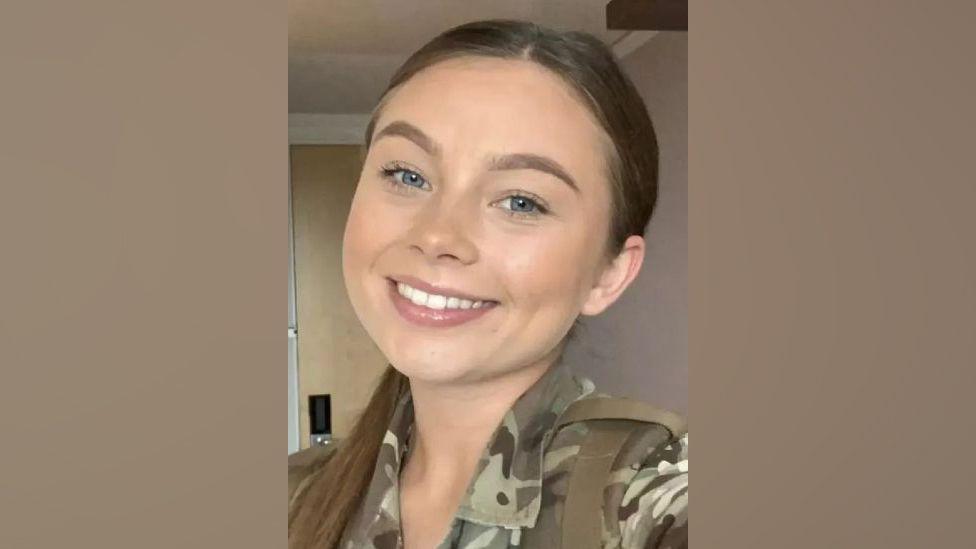Rape 'accepted way of life' say ex-forces women

Jennifer Gibson told the BBC she had been left "devastated" by her experience in the Royal Navy
- Published
Rape was seen as an "accepted way of life" during their time in the military, several ex-forces women have told the BBC.
They have shared their harrowing stories after 19-year-old Royal Artillery Gunner Jaysley Beck took her own life. A coroner found the army's handling of a sexual assault complaint she had made had played "more than a minimal contributory part in her death".
Warning: This article contains distressing content
Former seaman Jennifer Gibson told us how she had been "devastated" after she says she was raped and sexually assaulted while serving in the Royal Navy.
Another woman - who served in the RAF - claims she was dragged into woodland and gang-raped by a group of men, leaving her disabled. The men were found not guilty in a court martial.
The Ministry of Defence (MoD) said the "unacceptable behaviour" reported by the women the BBC had spoken to "has no place in our Armed Forces".
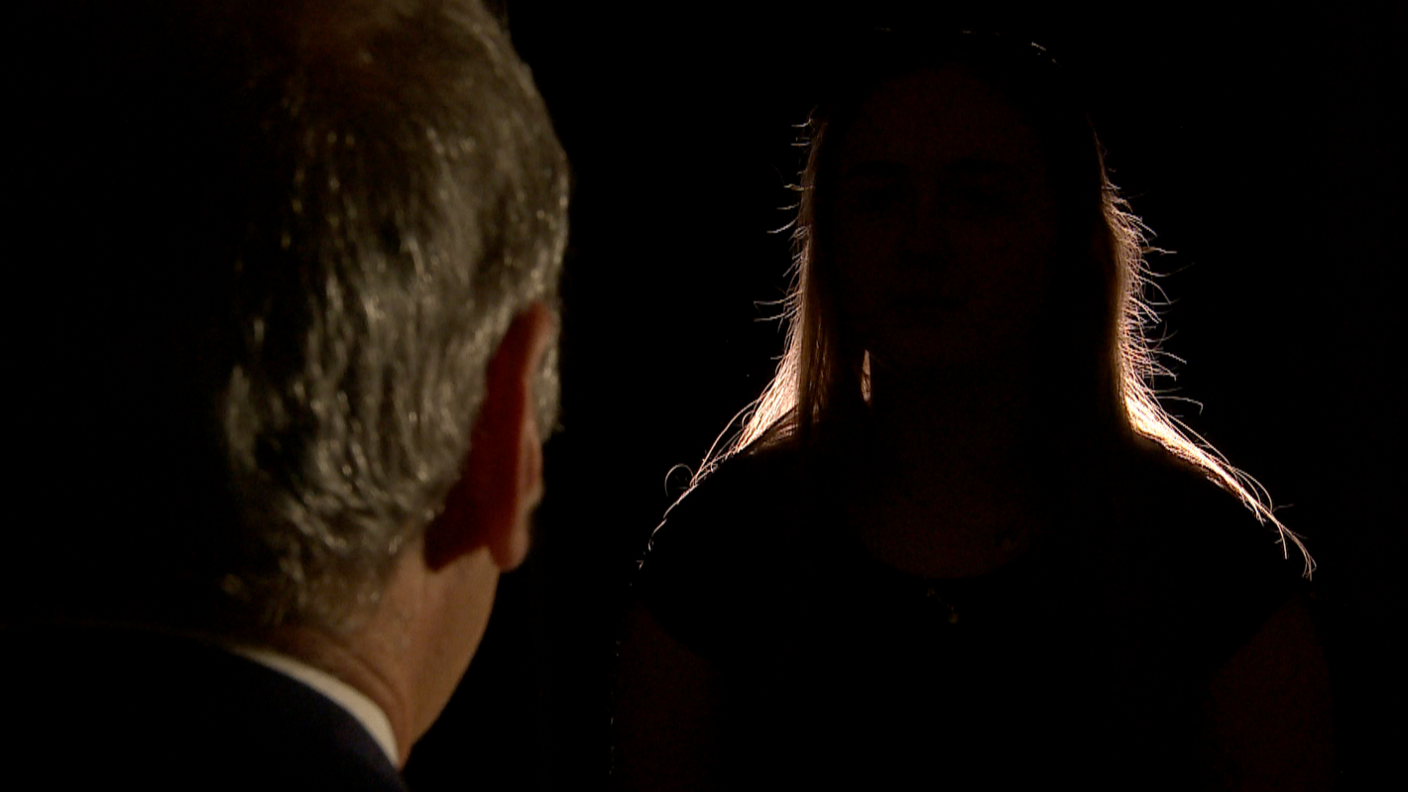
Three women who served across the military have spoken out about their experiences
Ms Gibson, 50, who lives in Somerset, has waived her anonymity to speak out about her experience in the Navy.
She alleges she was raped while out drinking with a group of colleagues six months into her service, having been recruited in 2004.
"I felt as you do after being raped; really dirty, horrible, devastated," she said, adding that, at the time, it was an "accepted way of life" in the military, meaning "you've either got to leave or carry on with your career".
Ms Gibson, who did not report the attack, claimed that people who alleged sexual assault were discharged prior to the introduction of the Armed Forces Act 2006 - legislation that underpins the justice system in the military.
Over the following decade, she said there had been many other sexual incidents, many other "really uncomfortable" moments. But they also went unreported, classed as everyday events.
She said: "[Men] wouldn't think twice about getting partially undressed, that was normalised, all the abnormal became the normal. It was difficult to deal with."
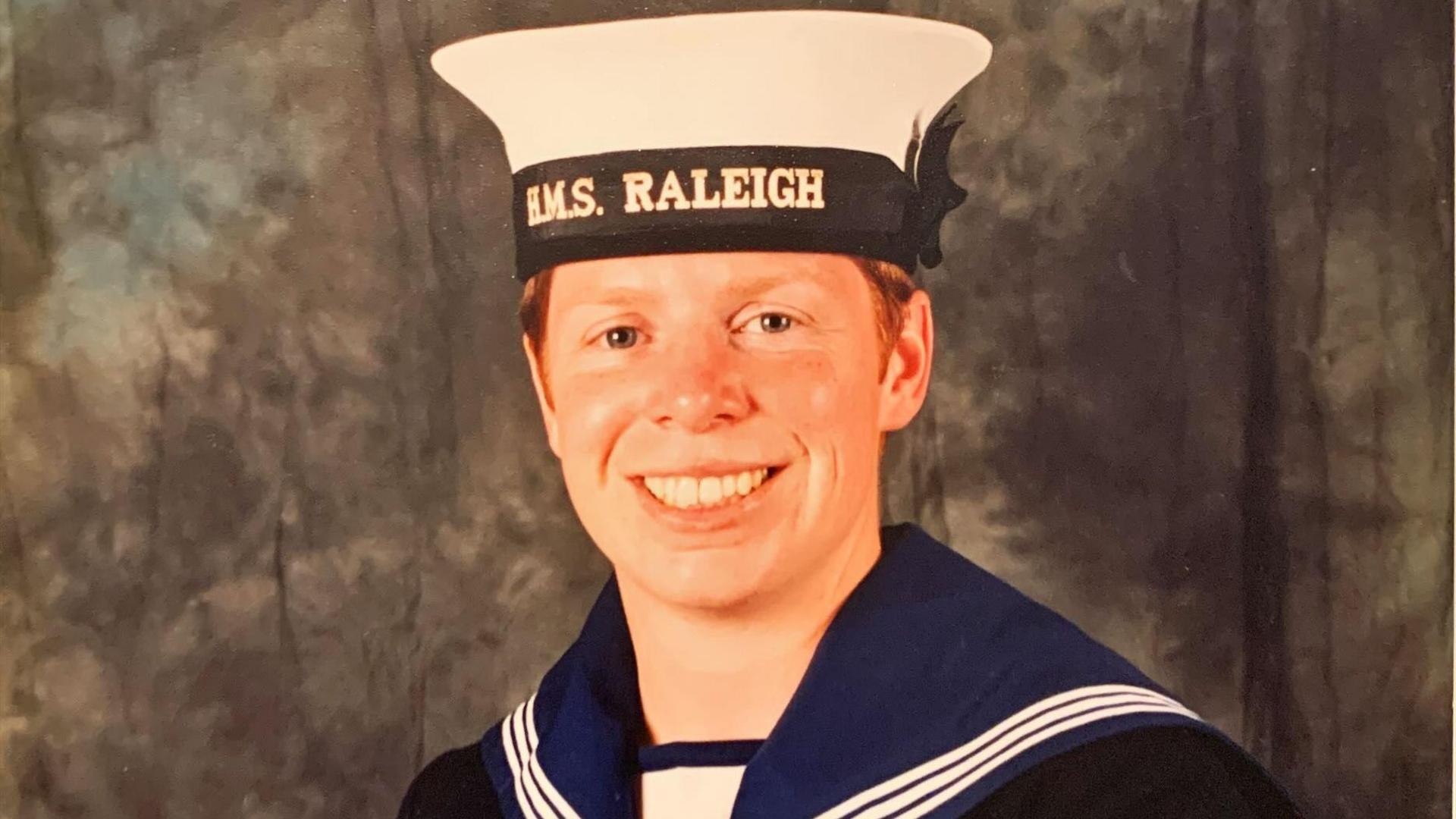
Ms Gibson was medically discharged from the Navy against her wishes
In 2014, she did report a time when she said she was sexually assaulted. There was an investigation and the alleged perpetrator was found not guilty by a court martial.
For Ms Gibson, the strain had become too much. She was medically discharged from the Navy in 2018 for mental health-related reasons, against her wishes.
She claimed she was ordered to attend a psychiatric hospital where she was diagnosed with post-traumatic stress disorder (PTSD) and depression, despite her insisting she was well.
'Shameful institution'
Another woman who joined the RAF in 1999, who preferred to remain anonymous, described the military as an "archaic" and "shameful" institution.
She recalled how she had joined her colleagues for a celebratory night out to mark the end of six weeks' training.
After returning to base camp, she said she had been struck over the head while walking along to the barracks and dragged into nearby woodland.
She said she had then been gang-raped by a group of six men in uniform.
"I always believed that I was in the safest place in the world on that camp. All my trust went," the 44-year-old said.
The following day, the men were overhead "boasting" about the attack and were reported to the military police sergeant. The victim was later told they had claimed it was "all her idea" to go into the woods.
"I had my head in my hands, considering what my life had become," she said. "I was in such a mess."
If you have been affected by any of the issues raised in this story, you can visit the BBC Action Line to find information and support.
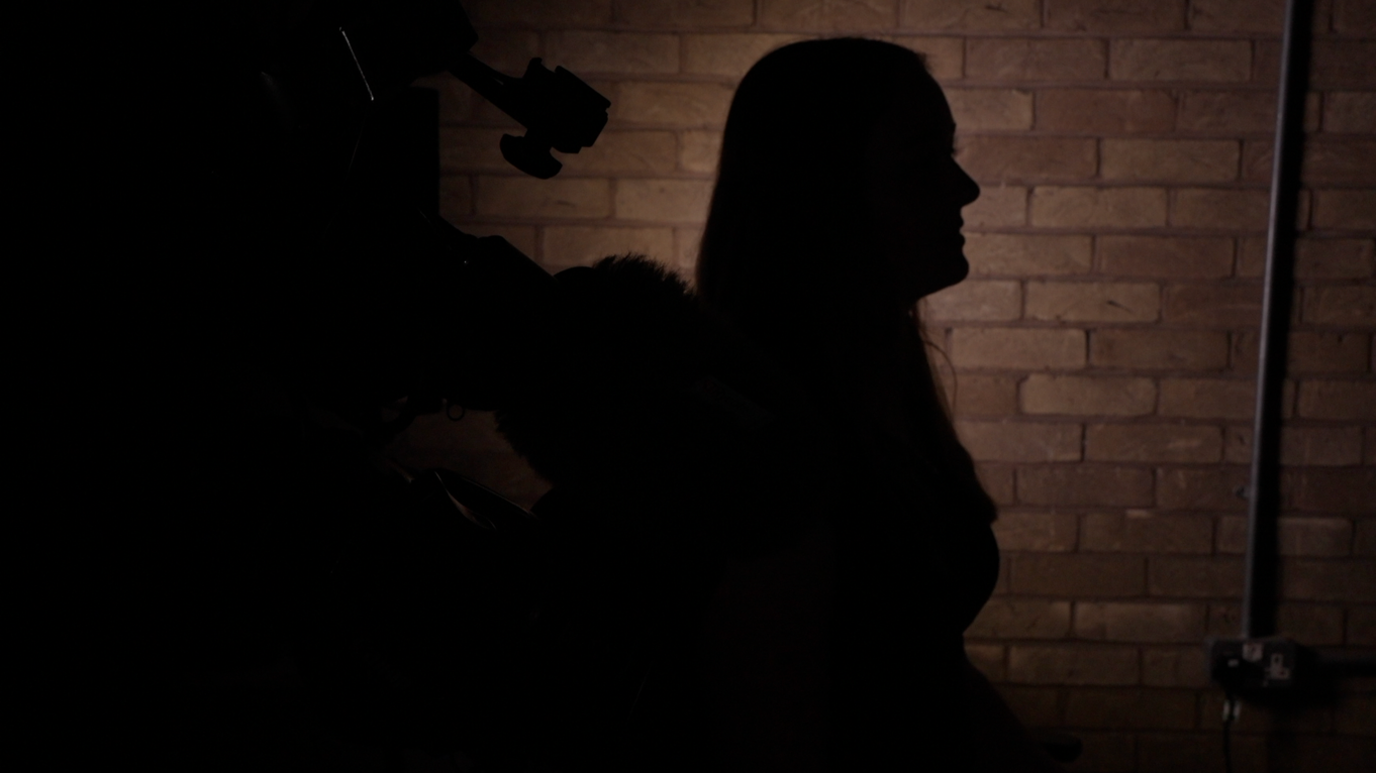
One woman who spoke to the BBC said she had been treated like a "fantasist"
The six men were eventually taken to court martial but found not guilty. Meanwhile, she was transferred to a different camp for a fresh start and soon discovered her "cards were already marked".
"Everybody was warned about me as if I was a liar, as if I was making it up. I was a fantasist who just liked making complaints," she said.
"My career was already over because I had reported what happened, and that destroyed me."
The experience left the woman suffering from brain damage, epilepsy, memory and speech difficulties, as well as PTSD and chronic depression. She was medically discharged in 2003.
"I will never advocate for joining the military," she said. "It's a shameful establishment and I think it needs to be fully investigated by a proper outside source."
'Spoken about like meat'
Another woman, whom the BBC is not naming due to ongoing legal proceedings, said she had joined the Army as a teenager in search of travel and independence.
Instead, she was met with relentless "unwanted attention" from her male peers, and said she had not been believed after reporting sexual violence.
"When you're in a male-dominated environment, you get spoken about like you're meat. Not as a colleague, a soldier or a friend," she said. "You almost become oblivious to it because it's all you're used to."
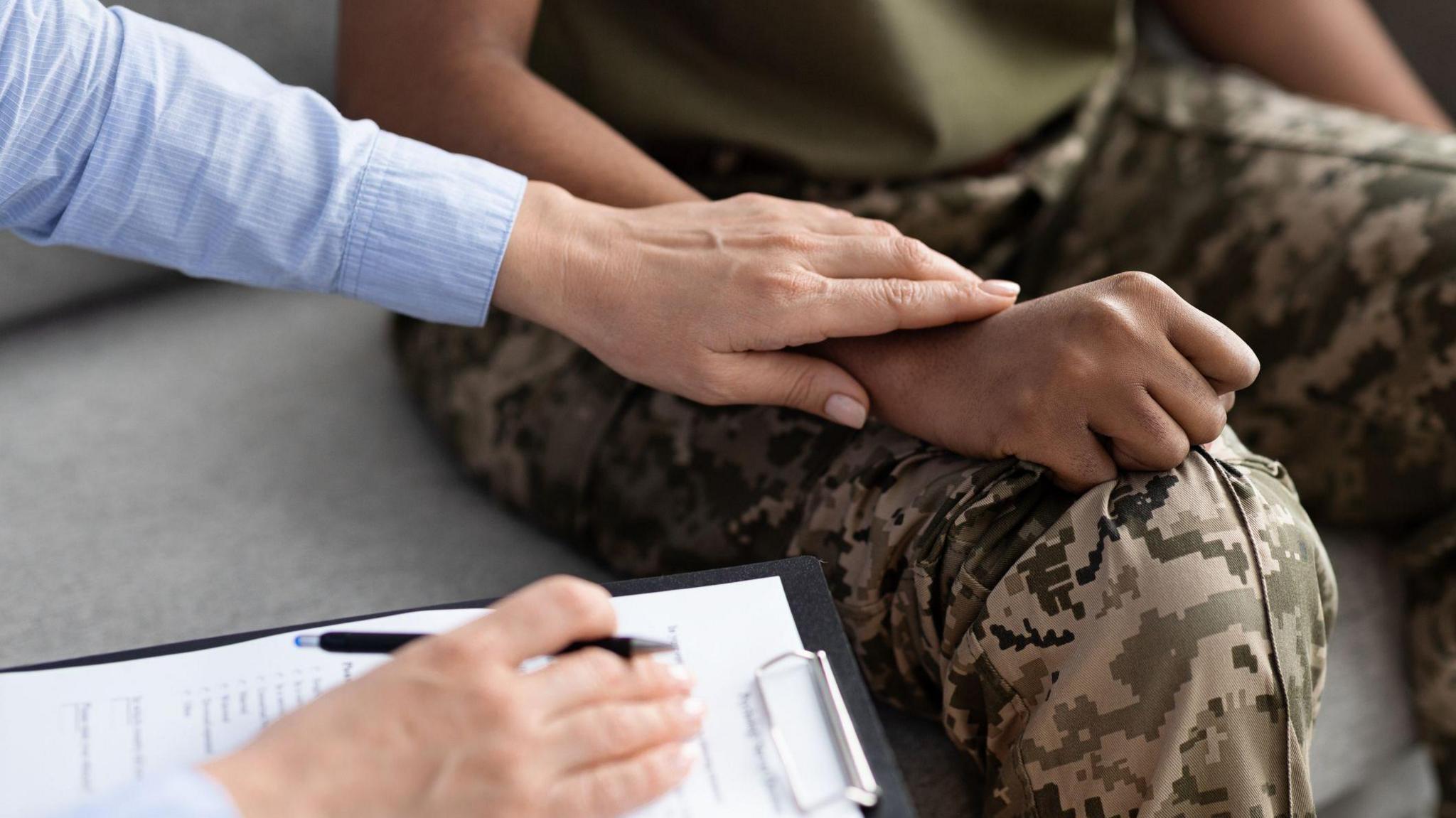
The sergeant major assigned to deal with the victim's case was later discharged for gross misconduct
The woman, now in her early 20s, claimed she had been raped by a colleague – who was acquitted at court martial and is still serving - during training in 2020.
In an "abuse of power", she said she was also groomed into a sexual relationship by a sergeant major - the senior welfare officer assigned to her rape case.
The woman reported the grooming and the sergeant major was discharged for serious gross misconduct.
But she said she had become regarded as the "problem child" by senior officers, some of whom described her as "attention-seeking" and "flirtatious".
Due to PTSD symptoms following the alleged rape, military psychiatrists recommended her for medical discharge and she was forced to abandon her "dream career" in 2022.
"I thought they were there to help me," she said. "Instead, at the back of their minds, all they had were intentions to end my career."
'Punished for reports'
Nicole Dodds, women's project lead at female veterans charity Salute Her UK, said many soldiers felt they had been misdiagnosed by military psychiatrists.
She said women were "often" diagnosed with emotional unstable personality disorder. They were then deemed unfit for service and lost their careers.
"They are having to work alongside their perpetrator, even after reporting it," Ms Dodds continued. "They feel like they are being punished for reporting that crime."
In order for victims to trust the judicial process, she said, investigations must "come out of the hands" of the military.

Ms Dodds said women had reported having to work alongside the perpetrators of their abuse
A government spokesperson said the current model of two different judicial systems for civilian and service personnel was under consideration, adding it had a "zero tolerance approach" to sexual offences.
An MOD spokesperson said the government was creating a new complaints team which would remove "the most serious complaints" from the chain of command for each service for the first time.
It said a new central taskforce had been set up "to give this issue the attention it deserves".
The MoD is also in the process of setting up an independent Armed Forces commissioner who will have the power to visit defence sites unannounced and "to investigate and report to parliament on any welfare matters affecting service life".
Get in touch
Tell us which stories we should cover in Wiltshire
Follow BBC Wiltshire on Facebook, external, X, external and Instagram, external. Send your story ideas to us on email or via WhatsApp on 0800 313 4630.
Related topics
- Published17 February
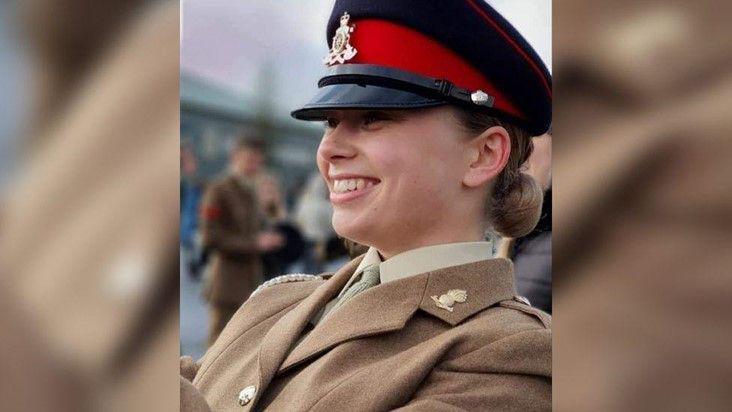
- Published22 February

- Published20 February
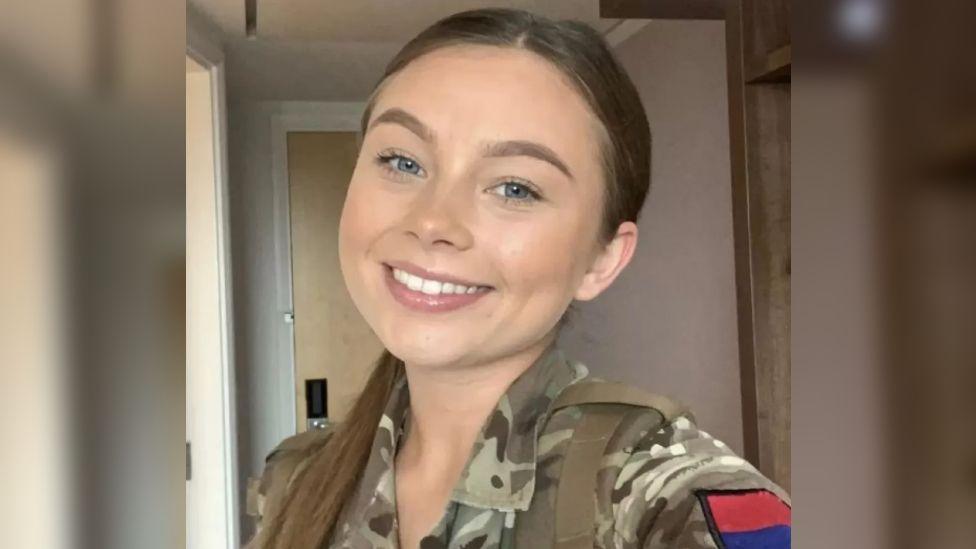
- Published26 February
